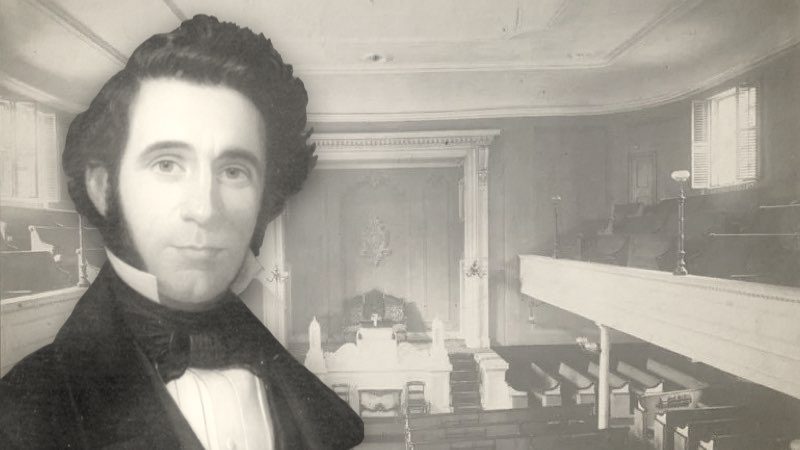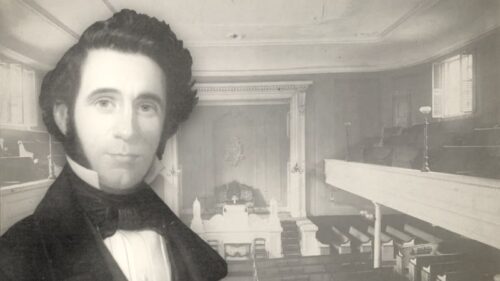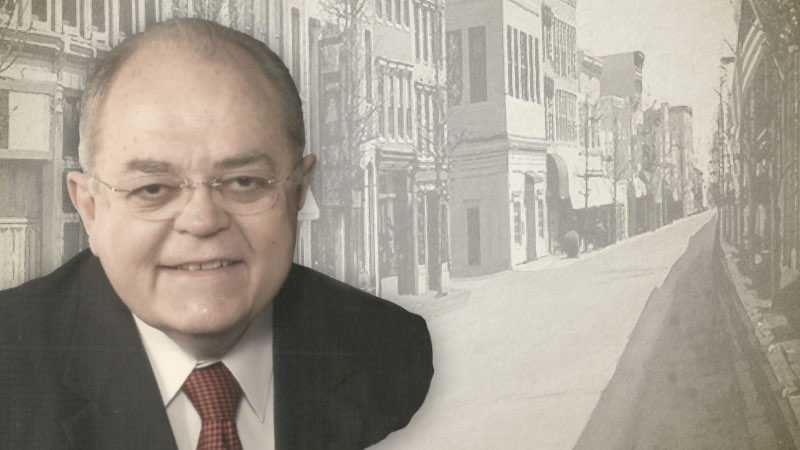-
A Very Strange Sound In Our Ears
Strange things I've heard Reformed Baptists say: "We must believe like John Calvin, but evangelize like James Arminius!" "If it were not for Paedobaptism, I would be a Presbyterian!" "A church is at high risk of pastoral dictatorship unless more than one pastor is appointed." "Christians need the church like babies need milk...it is their nourishment for life." "Hyper-calvinists have no urgency to preach the gospel to dying sinners," said one while spending a day visiting with me in the sitting room, instead of urgently preaching the gospel to my neigbors. "It is the unbeliever's duty to believe on Christ, and the believer's duty to obey the [moral] law!" "God wants you to come to Christ; the only thing keeping you from salvation is your…
-
11 The Christian Ministry
Few questions can be so vitally important to any Church, whether as relates to its own peace and prosperity, or to the success of the work it is appointed to do, as that of the kind of ministry which shall serve and lead it. No greater blessing can be granted of Heaven to a Church than a capable, judicious, pious pastor; and no greater calamity can befall one than to have an incompetent, unfaithful, secularized, and worldly minded minister. The people naturally contemplate the office with feelings of reverence, and consequently regard the incumbent with very great deference, to say the least. The young, in a special manner, consider what he says as true, and what he, does as right. The position commands high regard,…
-
6 Church Government
Is there any particular form of Church government revealed in the New Testament? And if so, what is it? These questions will be variously answered by Christian scholars and Bible students. Some hold that no specific form can be deduced from the sacred records, and that no one form is best suited for all people and for all places; and that it was purposely left for Christian wisdom and prudence, guided by experience, to decide that question. But the greater part believe that a specific form is at least outlined in the New Testament; and, naturally enough, each one believes the form with which he is identified is that divinely given form. It may be safely allowed that no one class or company of Christians…
-
4 Church Officers
Every form of organized society, whether civil, social or religious, is supposed to have officers, duly constituted to execute the laws, administer the government, and secure the ends contemplated by the organization. The Church is a commonwealth, a society, a family, and has its officers as leaders and administrators of its affairs. Officers, however, are not essential to the existence of a State, nor are they to the existence of a Church. They are nevertheless important to their highest efficiency, and the best exercise of their legitimate functions. The State does not lapse and cease to be, because its executive dies, resigns, or is removed. Nor does the Church cease to be a Church though it may be without officers. It was a Church before…
-
Ten Reasons I Am Not A Reformed Baptist
If one subscribes to sovereign grace with Baptist convictions, it is assumed he/she by default is a Reformed Baptist. It is then assumed a Reformed Baptist is another name for the historic group of churches known as the Particular Baptists. Henceforth, the appellations Reformed and Particular are used interchangeably, the legacy of the latter being subsumed by the identity of the former. However, according to Dr. Kenneth Dix, then Chairman for the Strict Baptist Historical Society, the Reformed Baptist movement emerged during the 1950’s, distinguished by teachings which differ from the Particular Baptists. The Origin Of The Reformed Baptist Movement Dr. Dix traced the origin of the Reformed Baptist movement to September 1955, with the first publication of the Banner of Truth Magazine. This magazine…
-
What Does It Mean To Be Reformed?
The sermons from which this tract sprang were preached to the Grace Baptist Church of Danville in Danville, Kentucky - USA, November 2, 1997 by Pastor Don Fortner. The tract is taken directly from the pastor’s sermon notes, with as few changes as possible. It was intended for our congregation, and is offered to the public only because of numerous requests that it be put into print. Tapes of the original messages preached in Danville are available. “Beware lest any man spoil you through philosophy and vain deceit, after the tradition of men, after the rudiments of the world, and not after Christ.” - Colossians 2:8 We are warned repeatedly to beware of false religion, false doctrine, and false prophets. Here Paul urges us to beware of those who…






